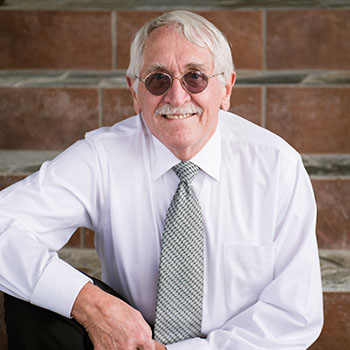
James Matray
- Email: jmatray@csuchico.edu
- Phone: 530-898-6475
- Location: Trinity 203
- Office Hours:
- Monday: 12:00 PM - 1:50 PM
- Wednesday: 12:00 PM - 1:00 PM
- Friday: 12:00 PM - 1:00 PM
Research
It was the summer of 1969 and I had just completed my third year at Lake Forest College. At a neighborhood picnic, an argument erupted, as was common at the time, about the Vietnam War. In response to my bitter criticism of the conflict, a family friend defended U.S. military action to stop communism shouting that “it was just like the Korean War.” Not knowing much about that conflict, his comment pretty much shut me up. That fall, I asked one of my professors to recommend a book about the Korean War to fill this gap in my knowledge. He recommended I.F. Stone’s The Hidden History of the Korean War, a famous revisionist account that made the case for a conspiracy between South Korean President Syngman Rhee and U.S. General Douglas MacArthur that provoked a North Korean attack to invite U.S. military intervention.
Six years later, I was a graduate student at the University of Virginia searching for a topic for my doctoral dissertation. I remembered the Korean War. At first, I planned to investigate the war years from June 1950 to July 1953, but soon learned that this was not possible because U.S. government documents remained classified. However, the archival materials for the prewar era were accessible, with records for the year 1950 soon to be declassified. In 1977, I completed my dissertation and, after revisions, it was published as The Reluctant Crusade: American Foreign Policy in Korea, 1941-1950 in 1985. Since then, my research on the war years has resulted in publication of book chapters, journal articles, and an historical dictionary on the conflict.
Choosing the origins and conduct of the Korean War as the focus of my research was fortuitous because I never have tired of examining the topic and always have found new aspects of the conflict worthy of investigation. But in 1987, I visited South Korea for the first time to present a paper at a conference on the Korean War. While there, I watched mass demonstrations against military rule that would lead to democratic reform. This experience led to my shocking realization that I did not know much about Korea’s history, culture, and people. For the past two decades, I have devoted much of my research agenda to investigating anti-Americanism in South Korea and the North Korean nuclear crisis. While I remain a specialist in U.S. foreign relations, I now also consider myself a scholar of modern Korean history.
Publications
Professor Matray currently is preparing a monograph on the Battles of Pork Chop Hill for publication by Indiana University Press in its "Twentieth Century Battles" series. His most recent book is Korea Divided: The 38th Parallel and the Demilitarized Zone. It is one of eighteen volumes in a series that he has edited titled Arbitrary Borders in History for Chelsea House. He also is the author of The Reluctant Crusade: American Foreign Policy in Korea, 1941-1950 and Japan¹s Emergence as a Global Power. Matray is editor of the East and the United States: An Encyclopedia of Relations Since 1784, Historical Dictionary of the Korean War, and Korea and the Cold War: Division, Destruction, and Disarmament. He has published articles in the Journal of American-East Asian Relations, New England Journal of History, Journal of Conflict Studies, Historian, Korean Studies, Diplomatic History, Prologue, Journal of American History, and Pacific Historical Review. Author of a dozen chapters in scholarly anthologies, Matray has written numerous encyclopedia entries and eighty book reviews in various journals.

